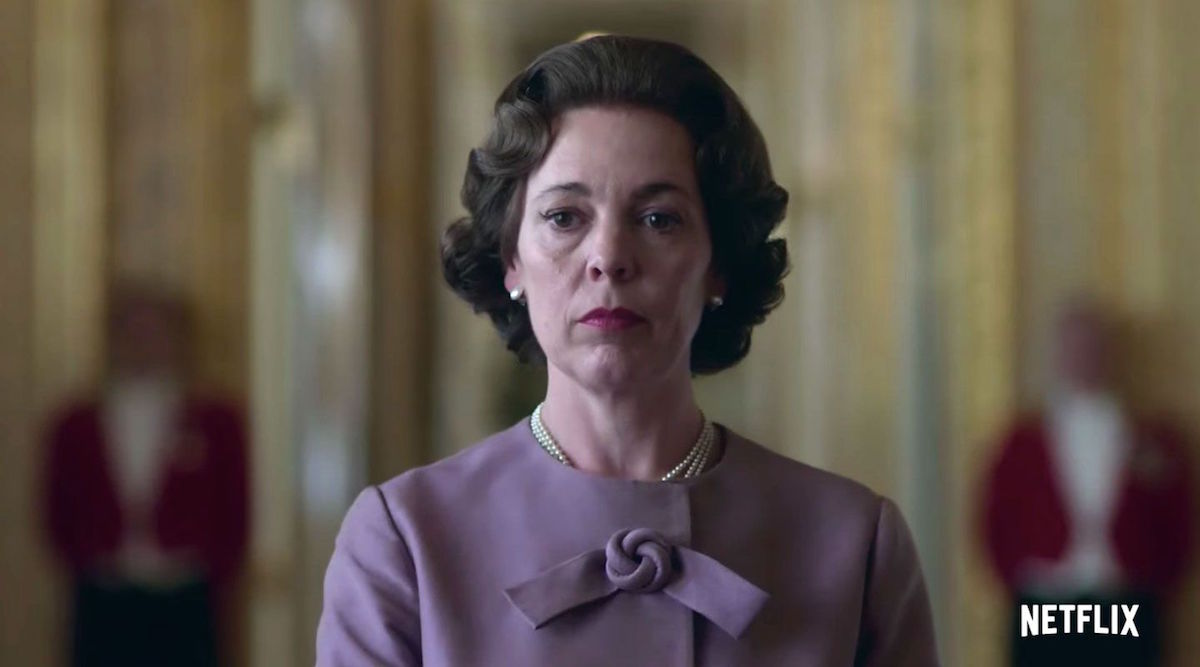Rewatching ‘The Crown’ After Elizabeth II’s Death Only Highlights That the Monarchy Is in Decline

Currently, the United Kingdom is in mourning for its longest-reigning monarch, Queen Elizabeth II, who ruled from 1952 to September 2022. The death has caused some people to begin actively rethinking the late queen’s role in imperialism and colonization. I am not mourning the queen because I don’t believe in monarchy, but I did decide I wanted to revisit Netflix’s The Crown with a more critical eye on how the show depicts the British monarchy.
For many, this series is their deepest insight into the royals. Initially starring Claire Foy and Matt Smith, The Crown has gone through the reign of Queen Elizabeth from her early ascension in seasons one and two, the ’60s and late ’80s in seasons three and four, with the ’90s and 2000s coming in the final two seasons. While watching the series, it is clear that the monarchy is often depicted as being on its last leg. The Royal Family is often out of touch, undereducated, and does not understand the will or emotional needs of the people they govern.
Season two has the episode “Marionettes,” which touches on John Grigg, formerly Lord Altrincham, a real figure from history. He criticized the Queen and the Royal family for their outdated behavior. He helped suggest the end of debutante balls and suggested opening up the palace. In the fictionalized telling of the story, Elizabeth, the queen’s mother, laments how the British monarchy has been stripped of power from the Manga Carta onward. In the first season, when Elizabeth questioned her mother about the disaster that was her education, the dismissive response was that she was taught what royal children were meant to learn.
Cinematically, the show often provides juxtaposition between the horrors of war, racial conflict, and colonial strife, and the unhappy marriages and family conflict of the royal family. When someone with Republican leanings (those who want the U.K. to be a Republic) is on the show, almost every single point they make is validated—they are just softly told that they’re hurting the royals’ feelings. In season three (with Olivia Colman, Tobias Menzies, and Helena Bonham Carter taking over Queen Elizabeth, Prince Philip, and Princess Margaret, respectively), we saw “Aberfan” highlight the queen’s emotional failure during the disaster that cost over a hundred children their lives.
There was also “Bubbikins,” which reintroduced Princess Alice, Philip’s mother, as a nun living in Greece and selling her jewelry. In the episode, Philip wants the family to be “paid what they deserve,” so he arranges a documentary to show the public they are “normal” people. It fails, and the Guardian reporter John Armstrong is called in to interview Princess Anne but is bait-and-switched to interview Alice instead. This plan works, resulting in the monarchy being saved not by a princess who grew up in a palace but by a princess who suffered from mental health issues, helped protect Jewish people from the Nazis, and was separated from her family during the war. Who would have imagined that would be more relatable?
Season four brought in Diana, a reminder of the old indifference that the monarchy showed to her and her mental health—just as Meghan Markle would accuse them of.
The next season of The Crown is slated to release sometime this year, right in the middle of the early months of Charles III’s reign, highlighting Charles and Diana’s divorce and the latter’s tragic death—certainly not things the new King wants in the public zeitgeist. Peter Morgan, the creator of The Crown, has said of the royal family:
They’re survival organisms, like a mutating virus. Look at how many prime ministers are wheeled out in coffins, on stretchers, having made fools of themselves: Downing Street is full of sick people. And yet She survives. It is clearly a deranged institution and a completely insane system, but perhaps it’s the insanity that makes it work.
The system She is in is so ridiculous and illogical that even just to unpack it from a point of view of reason or logic is such a joy. And that’s why I do what I do and I’ll keep on doing it until they stop me.
As I ran through this rewatch, I found that Morgan’s thesis of the series seems to be just that: the system is sick, destructive, and being held together by the trauma and programmed sense of duty the royals have. It is one that actively looks to protect itself and its interests, that upholds white supremacy through the remnants of the empire, and seeks to stop countries from being independent by increasing their carbon footprint by flying young royals about.
It is up to the British people if the monarchy carries on. From the day-long-queues for seeing the Queen’s casket, it appears like the nation has some respect for its lost monarch, but surviving is not the same as living, and there is no doubt, to me, that unless the monarchy evolves, it is never going to move past any of its mistakes—while still making money and using their limited power to protect assets. But Peter Morgan will keep making entertaining media out of it.
(featured image: Netflix)
Have a tip we should know? tips@themarysue.com